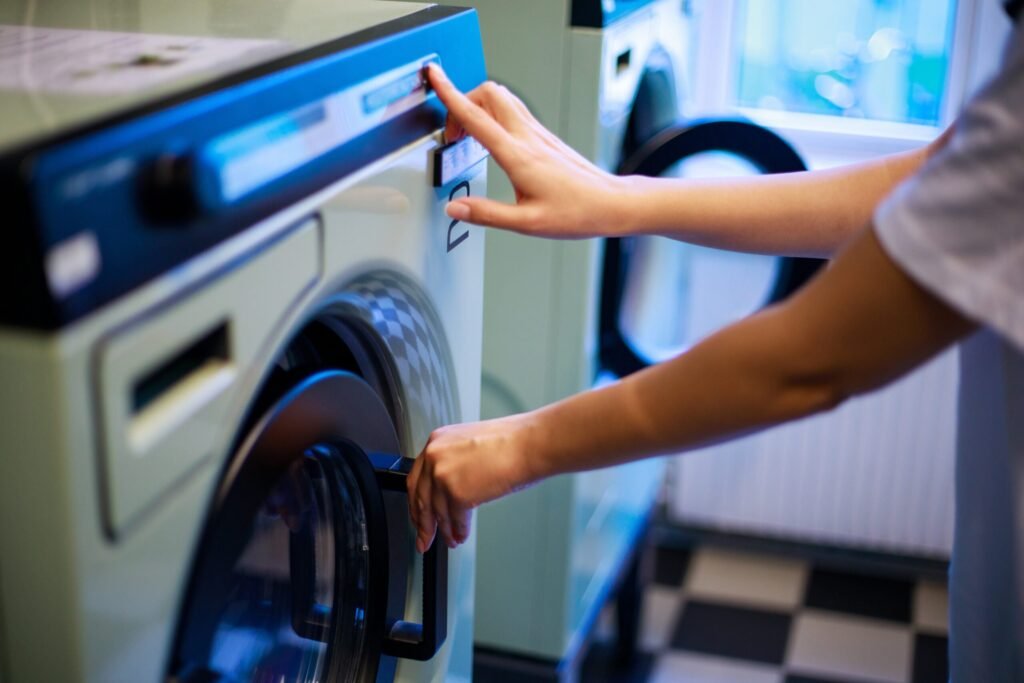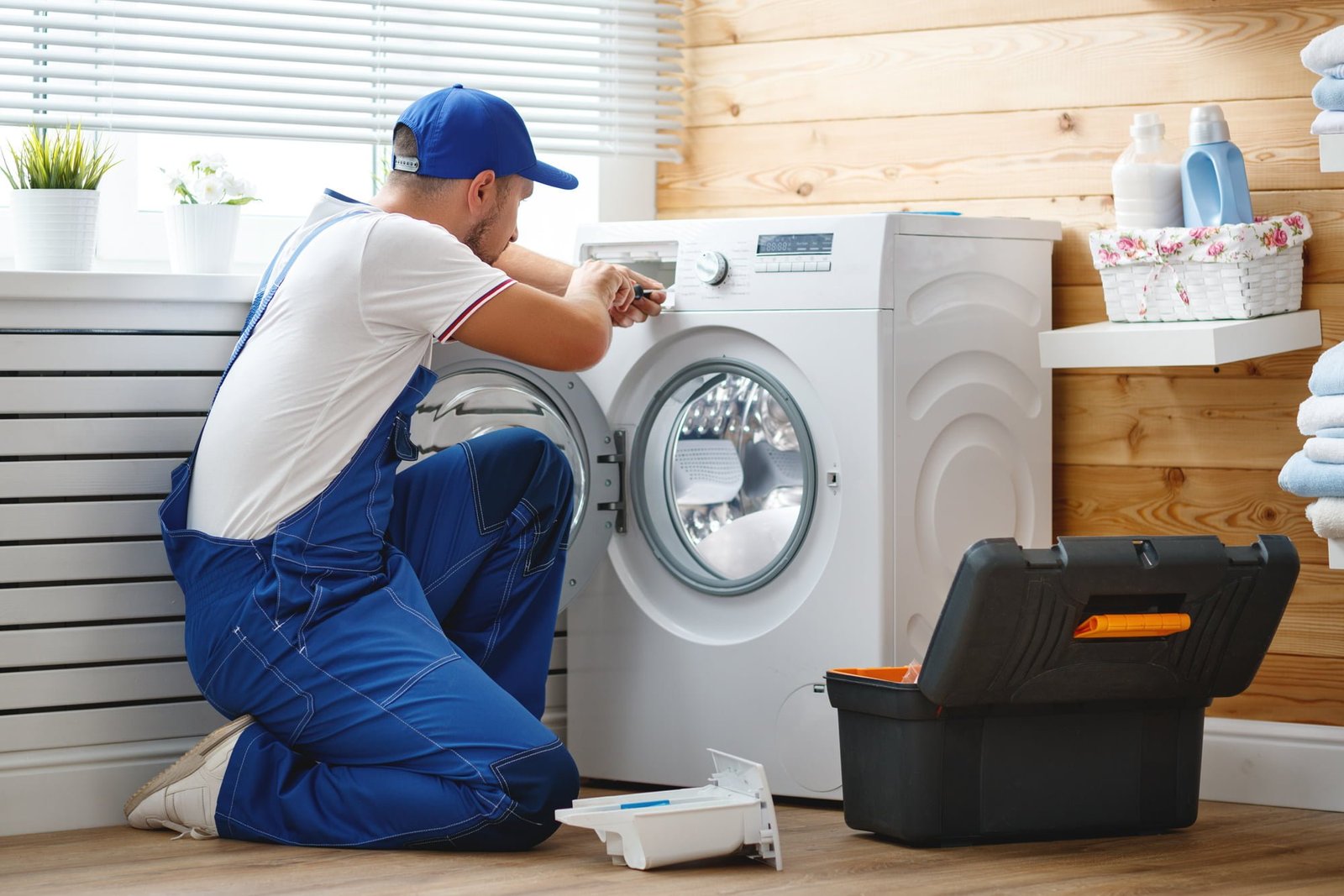Knowing how to perform basic washing machine repairs at home can save you time, money, and a lot of frustration. Instead of waiting for a repair technician, you can handle minor issues yourself and keep your machine running smoothly. This article will guide you through the essential steps of diagnosing and fixing common washing machine problems, ensuring you feel confident in managing these tasks on your own.
Understanding Your Washing Machine
Before diving into the washing machine repair, it’s crucial to understand the type of washing machine you have. The two main types are top-loading and front-loading machines. Each type has unique components and common issues, so knowing your machine’s design will help you troubleshoot more effectively.
Some key components you should be familiar with include:
- Drum: The container where you place your clothes.
- Motor: Powers the drum’s movement.
- Pump: Moves water in and out of the drum.
- Hoses: Carry water to and from the machine.
- Control Panel: Allows you to set wash cycles and settings.
Safety First
Always start by disconnecting the power supply. This step is crucial to avoid any electrical accidents. Unplug the machine from the outlet or switch off the circuit breaker dedicated to your laundry room.
Wear protective gear, such as gloves and safety glasses, to protect yourself from sharp edges, hot water, and electrical components. When you have fulfilled all the safety measures, you are free to perform any electrical appliance repair.
Common Washing Machine Problems
Before getting into the washing machine repair, let’s learn about the common problems first.
- Washer Won’t Turn On: If your washing machine won’t turn on, it could be due to several issues, such as a faulty power supply or a broken lid switch.
- Washer Won’t Spin: A washer that won’t spin might have an unbalanced load or a worn-out drive belt.
- Water Leakage: Water leaking from your machine can be caused by loose hoses or a damaged door seal.
- Strange Noises: Unusual noises during operation often indicate loose parts or worn-out bearings.
- Washer Smells Bad: A bad smell usually means there’s mold or mildew build-up inside the drum or detergent drawer.
How to Perform Washing Machine Repair

Washer Won’t Turn On
First, ensure that your washing machine is properly plugged in and that the outlet is working. You can test the outlet by plugging in another device. If the outlet is faulty, check your home’s circuit breaker.
The lid switch is a safety feature that prevents the washer from operating with the lid open. If this switch is faulty, the machine won’t turn on. Locate the lid switch near the door frame and test it with a multimeter for continuity. If it’s defective, replace it.
Washer Won’t Spin
An unbalanced load can prevent the washer from spinning. Make sure your clothes are evenly distributed in the drum. Avoid overloading the machine, as this can also cause balance issues.
The drive belt connects the motor to the drum. If it’s loose or broken, the drum won’t spin. To inspect it, remove the back panel of the washer and check the belt’s condition. Replace it if necessary.
Water Leakage
Inspect the water inlet and drain hoses for any cracks or loose connections. Tighten the connections or replace the hoses if they are damaged.
Front-loading washers have a rubber door seal that can wear out or get damaged over time. Check for any signs of wear or mold, and replace the seal if needed.
Strange Noises
Pinpointing the source of the noise can help you determine the cause. Common culprits include loose drum bearings, worn-out motor couplings, or objects stuck in the drum.
If you find any loose parts, tighten them. If the noise persists, you may need to replace worn-out components like bearings or motor couplings.
Washer Smells Bad
Run an empty hot water cycle with a cup of white vinegar to clean the drum. This helps remove any mold, mildew, or detergent residue.
Using too much or the wrong type of detergent can cause build-up and bad odors. Follow the manufacturer’s recommendations for detergent type and amount.
Regular Maintenance Tips
The filter traps lint and debris. Clean it regularly to prevent blockages and maintain your washer’s efficiency.
Leave the washer door open after each cycle to allow the drum to dry out, reducing the risk of mold and mildew growth.
When to Call a Professional
Some issues require professional expertise. If your washing machine has electrical problems, complex mechanical issues, or if you’re unsure about a repair, it’s best to call a professional.
Professionals have the right tools and experience to diagnose and fix problems quickly and safely. They can also provide a warranty on their repairs, giving you peace of mind.
Reliant Solutions for Washing Machine Repairs
Although you may resolve some issues, many problems require expert guidance. For such scenarios, Reliant Solutions offers excellent washing machine repair services. They handle a wide range of issues, from simple fixes to complex repairs, ensuring your machine runs smoothly.
The team consist of several industry-leading experts and technical artisans who can solve complicated washing machine problems in one go. It is also evident from the long run of the company in the industry. Reliant Solutions has been serving its customers for more than a decade.
But repairing the washing machine is not the only thing that you will get from Reliant. We also provide servicing, repairing, and maintenance services all across Pakistan. So, it doesn’t matter whether you want home appliance solutions in Lahore, Karachi, Islamabad, Peshawar, or any rural region. Reliant Solutions will be there for you to serve you with the best repairs.
Conclusion
Performing basic washing machine repairs at home can save you both time and money. By understanding your machine, prioritizing safety, and following regular maintenance tips, you can tackle many common issues on your own. However, for more technical problems, don’t hesitate to contact professionals like Reliant Solutions to ensure your machine is in expert hands.

